After Lt. Gen. Carl A. Strock's Aug. 10 announcement that he had asked to resign as commander of the Army Corps of Engineers, the Army soon will start the search for his replacement. Strock, the Corps chief since July 2004, has led the Corps during a time of severe pressures, including the continued rebuilding of Iraq and the cleanup of the Gulf Coast and reconstruction of flood control structures around New Orleans after last year's hurricanes.
An advisory panel of senior Army officers will begin to evaluate candidates to be the next Chief of Engineers and Corps commander. . The panel will recommend a short list of possible successors, which will be forwarded through channels to Secretary of the Army Francis Harvey. He will made a recommendation to Defense Secretary Donald Rumsfeld, and Rumsfeld will send a name to the White House. President Bush then will make his choice and transmit it to the Senate for confirmation.
|
John Paul Woodley Jr., assistant secretary of the Army for civil works, says that Strock will stay as chief until a successor is confirmed. The process probably be lengthy, Woodley told ENR in an Aug. 14 interview. "We'll try to accelerate it as much as possible," says Woodley, but adds, "I don't want anyone to think that this is going to be easy or short.".
He says that there are "a lot of truly exceptional officers who are entitled to consideration."
According to sources, possible candidates, in alphabetical order, are:
|
|
|
|
|
|
|
|
Strock's announcement, made at the Corps' annual conference of the agency's top officers and civilian officials, in San Diego, came as a surprise to people inside and outside the Corps. "It was a shock," says Worth Hager, president of the National Waterways Conference. Assistant Army Secretary Woodley said Strock had talked to him about his decision in San Diego, "I was not expecting it," Woodley says.
Woodley says, "He described it a private and personal decision and I fully respect that." Asked whether Strock was asked to resign, Woodley says, "In no way."
Strock is declining requests for interviews, a Corps spokesman says.
Strock's predecessor as chief, retired Lt. Gen. Robert B. Flowers, discounts speculation that Strock's departure is in any way tied to what critics characterize as mismanagement of Iraq reconstruction contracts or Strock's admission June 1 that the flood protection failed New Orleans after Hurricane Katrina last year.
That came after the release of a Corps-sponsored, 6,100-page report, which said, "The storm exceeded design criteria, but the performance was less than the design intent." The report added that the devastation of the New Orleans area's levees "was aided by the presence of incomplete protection, lower than authorized structures, and levee sections with erodible materials."
SAt a press conference June 1, Strock said, "The Corps is responsible for the projects we build and manage, and we are accountable to the American people." The experience in the Gulf Coast has "been sobering for us. But really this is the first time that the Corps of Engineers has had to stand up and say we had a catastrophic failure of one of our projects."
Flowers, now CEO of HNTB Federal Systems group, says that Strock's candor "If anything, won him kudos," in Washington and across the engineering community. David R. Conrad, National Wildlife Federation senior water resources specialist, says Strock's statement about New Orleans flood protection took "some notable courage in and of itself. I think history will hopefully benefit from his openness in accepting that responsibility on behalf of the organization."
Strock was well-regarded by industry officials and federal colleagues. Hager says, "He really is one of the finest people I know--deep thinker, kind-hearted, certainly an asset to the nation."
Ed Link, University of Maryland civil engineering professor and leader of the Inter Agency Performance Review Task force that analyzed the New Orleans flood defenses during last year's hurricanes, says, "He was the right Chief to be in charge through this last year."
Link adds, "He has a tremendous amount of integrity and professionalism. He poked me in the chest one time to say, 'Don't you dare let me catch you trying to defend the Corps.' He required us to be factual and be open and provide our results early and often, and I think he was absolutely right on."
Conrad of the National Wildlife Federation says Strock "has been leading the Corps through an extremely difficult period and attempting to deal with an enormous number of often conflicting pressures and still attempting to maintain an organizational sense of confidence and direction."
Woodley says Strock "has been a voice of...authority, stability, integrity, and a very forward-looking leader, one who has embraced the principles of modern management in the Corps." He adds that Strock has brought to his job "just a towering credibility based on long and distinguished career as an engineer, both in combat and in very significant roles in the civil works arena."
Woodley says Strock is a "consummate soldier and consummate public servant, and we will miss him very, very much."
 Related Links:
Related Links: 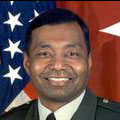
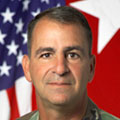
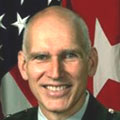
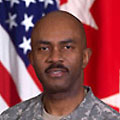
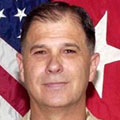
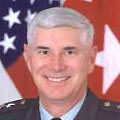
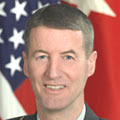
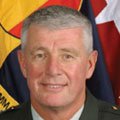

Post a comment to this article
Report Abusive Comment